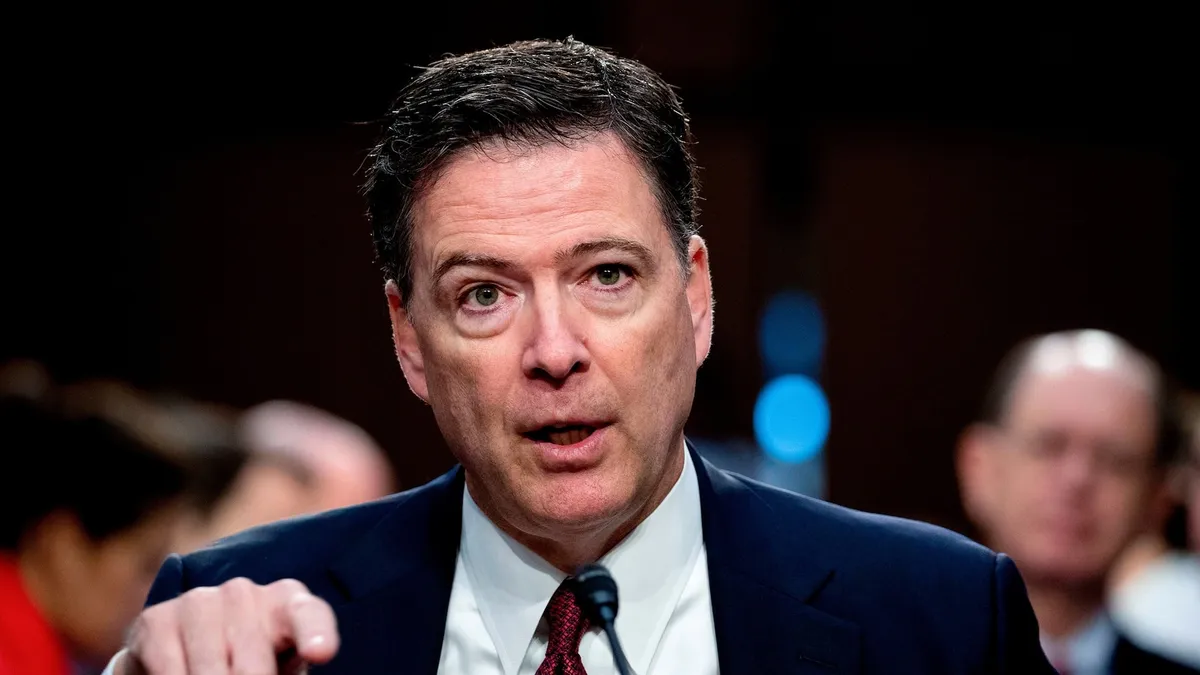
After a comprehensive two-month investigation, federal prosecutors in Virginia have determined that there is insufficient evidence to support criminal charges against former FBI Director James Comey for allegedly lying to Congress. Sources disclosed to ABC News that the prosecutors recently summarized their findings, stating that there is no probable cause to secure an indictment, let alone achieve a conviction at trial. This conclusion was documented in a detailed declination memo addressed to Lindsey Halligan, the newly appointed U.S. attorney for the Eastern District of Virginia under President Donald Trump.
Despite the prosecutors’ findings, Halligan reportedly intends to present the case to a grand jury in the upcoming days, which could escalate Trump’s unprecedented push to prosecute his political adversaries. Following a directive from Trump, Halligan is set to pursue an indictment against Comey, along with New York Attorney General Letitia James and Senator Adam Schiff. This move raises ethical questions, especially since Halligan, a former insurance lawyer with no prosecutorial experience, has been advised by career prosecutors that pursuing charges could conflict with Department of Justice (DOJ) policies and potentially be rejected by the grand jury.
During a recent press conference, Trump characterized Comey as a “bad person” but emphasized that the final decision to prosecute lies with the Department of Justice. "They're going to make a determination. I'm not making that determination," Trump stated, although he did express that he could involve himself if he wished. Trump's remarks came shortly after he publicly urged the Justice Department to act swiftly. Halligan faces a tight deadline, as the five-year statute of limitations for prosecuting Comey for alleged false statements is set to expire on Tuesday.
The U.S. attorney's office in the Eastern District of Virginia initiated its investigation into Comey in early August, following renewed calls from Trump for prosecutions related to alleged Russian interference in the 2016 election. This investigation is being conducted simultaneously with inquiries in the Western District of Virginia and the Eastern District of Pennsylvania. The origins of the probe trace back to a discovery made by FBI Director Kash Patel, who found sensitive documents at FBI headquarters concerning the Russia investigation.
Investigators focused on Comey's testimony to Congress in September 2020, specifically examining whether it could substantiate charges of perjury or obstruction. Prosecutors scrutinized Comey’s statements regarding former presidential candidate Hillary Clinton and whether he authorized leaks of sensitive information to the media. During his testimony to the Senate Judiciary Committee on September 30, 2016, Comey defended his actions and rejected allegations that the investigation was politically motivated, stating that it was conducted appropriately and essential.
Ultimately, the prosecutors were unable to find evidence sufficient to prove that Comey likely committed perjury or obstruction. Sources revealed to ABC News that not only would any charges fail to secure a conviction, which requires proof beyond a reasonable doubt, but they also did not meet the much lower probable cause standard necessary for an indictment. This conclusion was included in the memo provided to Halligan, highlighting the complexities surrounding this high-profile case.